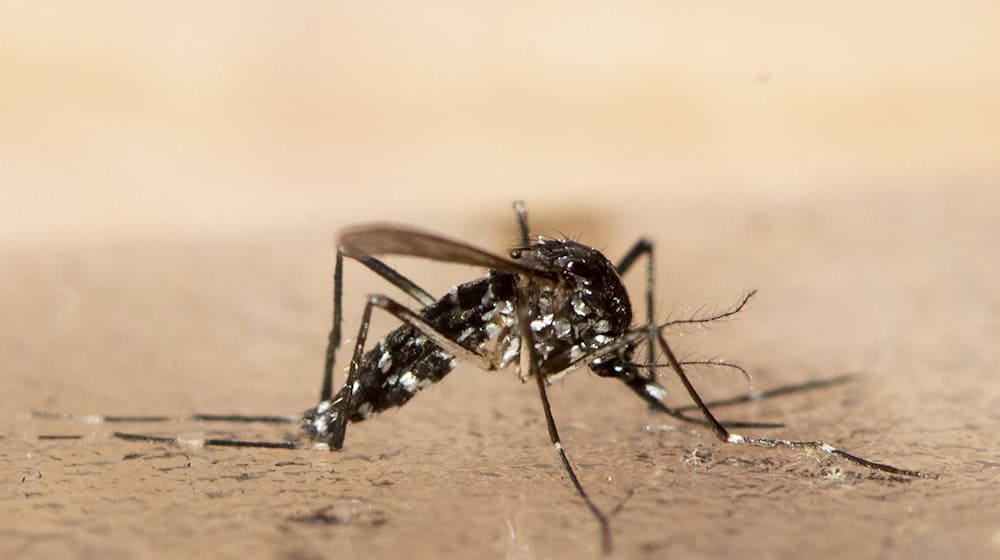Dresden is declaring war on the aggressive Asian tiger mosquito (Aedes albopictus). To this end, the city's health department and the State Institute for Health and Veterinary Inspection (LUA) are launching a program to monitor, prevent and control the insects. The focus is on the Äußere Neustadt district, where the mosquitoes have been appearing again and again recently. "Residents can play an active role by avoiding breeding sites, adhering to prevention measures and reporting suspected cases," the city announced.
The program is set to begin next Monday. A company from Nuremberg, which is said to have extensive expertise in the field of pest control and is active throughout Germany, has been commissioned to carry out the program. By October, residents of the district will initially be informed about the identification of breeding sites and effective preventative measures in talks, by post, email or via the website. The population is asked to document the discovery of tiger mosquitoes by photo and report it to the LUA.
Tiger mosquitoes have a high-contrast black and white pattern
The Asian tiger mosquito can be recognized by a number of characteristic features. These include a clear, high-contrast black and white pattern. This is why the insects are also known as "flying zebras". They have white longitudinal stripes on their head and back. There are also white stripes on the hind legs and the last leg is completely white. The animals have transparent wings and grow to a size of three to eight millimetres, according to reports.
Tiger mosquito traps will be set up
In order to record the extent of the population and "hotspots", several tiger mosquito traps will be set up around Tannenstraße in Neustadt from Monday. Residents should remove all possible breeding sites in their gardens and on their balconies and protect containers from rain. Rain barrels and similar water collection containers should be closed with a mosquito net or a tight-fitting lid, they said.
The Asian tiger mosquito, which also bites during the day, was first detected in Dresden last year. It was originally native to the Asia-Pacific region and is spreading worldwide. The insects can transmit pathogens such as the dengue, Zika and chikungunya viruses, as well as the West Nile virus.
Copyright 2025, dpa (www.dpa.de). All rights reserved










